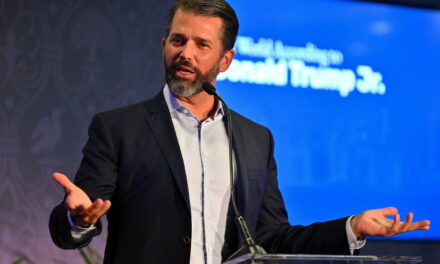The general defense and national defense funds are needed in order to be able to ease the burden on families, to be able to preserve the achieved results, and in response to the war situation to guarantee the peace and security of the country, the Minister of Finance told Kossuth radio's Sunday Newspaper program that next year's budget about the draft.
Mihály Varga reminded: in 2019, before the outbreak of the epidemic, the budget calculated a deficit of 1 percent, but the crisis overwrote the figures. High energy prices, rising inflation and the increase in interest burdens on debt service significantly increase expenses, he noted, indicating that all this does not change the government's commitment.
The draft of next year's budget ensures that in the following years the public finances will return to the disciplined path before the epidemic, which is why the deficit and the public debt will decrease in 2023, to 3.5 percent and 73.8 percent, respectively.
Next year's budget was planned so that HUF 670 billion would flow into the overhead defense fund, and HUF 842 billion would flow into the national defense fund. With the latter, Hungary will achieve its previously planned goal - as a NATO commitment to spend at least 2 percent of the gross domestic product (GDP) on defense by 2024 - as early as 2023, as national defense expenditures will rise to well over HUF 1,300 billion he noted.
Mihály Varga said that their goal with the overhead protection fund is to protect the previously achieved results and to ease the burden on families.
The importance of overhead protection is shown by the fact that in many European countries they are now looking for a solution to support family budgets through the extra profits of energy companies; there are also discussions about this in Great Britain, Germany and France, he indicated.
The Minister of Finance called it an advantage of the Hungarian system that since 2013, Hungary has been able to think about an overhead protection system that ensures this protection, but now a very strong challenge has arisen in terms of the sustainability of the system due to high energy prices and inflation.
The Hungarian government has decided that it wishes to preserve this system: the payments of the overhead protection fund must serve the purpose of ensuring that the energy supply - whether it is gas or electricity - takes place within the usual framework.
According to Mihály Varga, it would be important that the developments initiated by the enterprises continue and that the planned foreign investments are realized. They are looking to provide support for job creation and investments, "this can provide the impetus for the next 2-3 years," he said. He emphasized: if our revenues fall short, if growth stops, "a much more difficult year awaits us in 2023".
He also touched on the fact that there are still discussions about the kata, their goal is to preserve the benefits of preferential taxation for those with a small existence, but "the abuses caused by the kata will be eradicated".
He said that the recovery fund is still being discussed with the European Commission, but he is confident that an agreement will be reached. On the other EU issue, the negotiations on the seven-year budget can be concluded by the end of July, so they can already count on their resources in the 2023 budget, he added.
Finally, Mihály Varga also spoke about the fact that both monetary and fiscal policy are aimed at curbing inflation as much as possible; they expect that the trend of rising consumer prices will stop, so next year's budget was planned with inflation between 5-6 percent.
Source: magyarhirlap.hu
Featured image: Origo













